(Above) Dr. Terry LeBlanc (Mi'kmaq-Acadian), director, North American Institute of Indigenous Theological Studies and Dr. Casey Church (Pokagon Band Potawatomi member from southwest Michigan), director of Wiconi International, present Commissioner Susan McMillan with a second eagle feather to add to the eagle staff created for last year’s celebration, in honour of The Salvation Army's efforts to build a new relationship with Indigenous people. (Photos: Giselle Randall)
More than 200 people from across Canada attended The Salvation Army’s second annual Celebration of Culture: A Journey of Reconciliation, held in partnership with Indigenous Pathways, at the Army’s Pine Lake Camp in Alberta from August 24-26. The event was an expression of the Army’s desire to listen, learn and build relationships with Indigenous people, in response to the Truth and Reconciliation Commission’s calls to action.
The weekend began with a welcome ceremony on Friday evening, with music by special guest Michael Jacobs. The Four Crest Dancers, a group from Gitwinksihlkw, B.C., who belong to the Nisga’a Nation, performed three songs, including Gitwinksihlkw Wil Bugum (Gitwinksihlkw is Who We Are).
On Saturday morning, delegates chose from a variety of workshops, including the importance of language, moving beyond the culture wars and an Indigenous interpretation of repentance. Throughout the weekend, they were able to participate in several traditional Indigenous customs, such as raising a tipi and praying together in a sweat lodge.
The main event of the weekend was a pow wow, a social gathering held by many different North American Indigenous communities, which features dancing, singing, socializing and feasting together.
Commissioner Susan McMillan, territorial commander of the Canada and Bermuda Territory, was presented with a second eagle feather to add to the eagle staff created for last year’s celebration by Salvationist Michelle Stoney (Gitxsan and Cree First Nations).
“That was a highlight for me,” says Commissioner McMillan. “They’re recognizing us for the efforts we’re making at reconciliation.”
The weekend concluded on Sunday with a pipe ceremony and morning service.
“It’s exciting to see people growing in their understanding of the richness and value of Indigenous culture—whether we’re Nisga’a or Gitxsan or Anishinaabe or Mi’kmaq,” says Major Shari Russell (Yellow Quill First Nation), territorial Indigenous ministries consultant. "Relationship is key to reconciliation, so it’s important to create spaces where people can learn from one another and share their gifts."
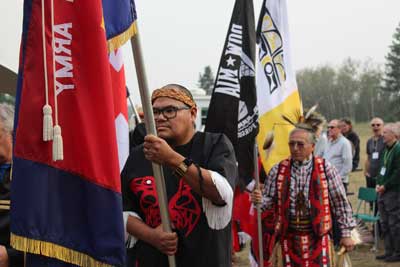 The Grand Entry signals the official opening of the Pow Wow and calls for dancers to enter the arena.
The Grand Entry signals the official opening of the Pow Wow and calls for dancers to enter the arena.
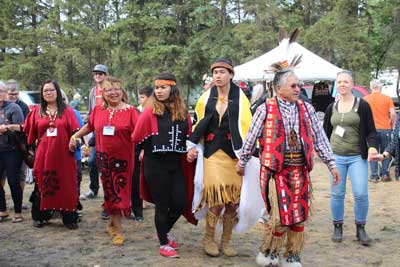 Everyone is welcome to join a round dance.
Everyone is welcome to join a round dance.
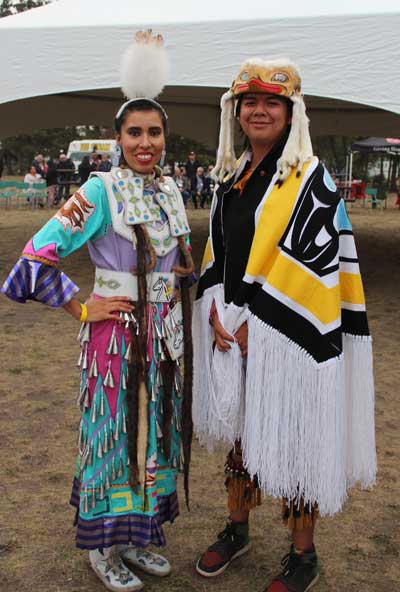 Head dancers Fawnda Bullshields (Kainai Nation) and Ethan Moore (Nisga'a Nation).
Head dancers Fawnda Bullshields (Kainai Nation) and Ethan Moore (Nisga'a Nation).
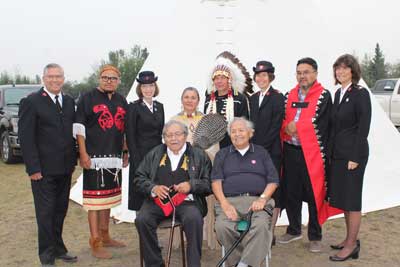 Commissioner Susan McMillan, territorial commander, and members of cabinet with Indigenous leaders. Back Row: Lt-Colonel Brian Armstrong, secretary for personnel; Damian Azak (Nisga'a Nation), corps leader, Gitwinksihlkw, B.C.; Commissioner McMillan; Major Shari Russell; Dr. Terry LeBlanc; Major Margaret McLeod, divisional commander, Alberta and Northern Territories Division; Collier Azak (Nisga'a Nation); and Lt-Colonel Lynn Armstrong, secretary for program. Front Row: Chester Moore (Nisga'a Nation) and Jacob Nyce (Nisga'a Nation).
Commissioner Susan McMillan, territorial commander, and members of cabinet with Indigenous leaders. Back Row: Lt-Colonel Brian Armstrong, secretary for personnel; Damian Azak (Nisga'a Nation), corps leader, Gitwinksihlkw, B.C.; Commissioner McMillan; Major Shari Russell; Dr. Terry LeBlanc; Major Margaret McLeod, divisional commander, Alberta and Northern Territories Division; Collier Azak (Nisga'a Nation); and Lt-Colonel Lynn Armstrong, secretary for program. Front Row: Chester Moore (Nisga'a Nation) and Jacob Nyce (Nisga'a Nation).




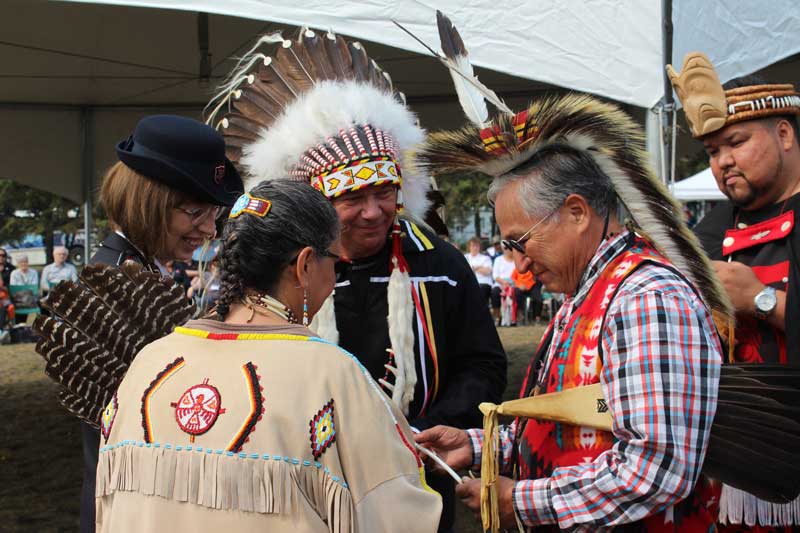

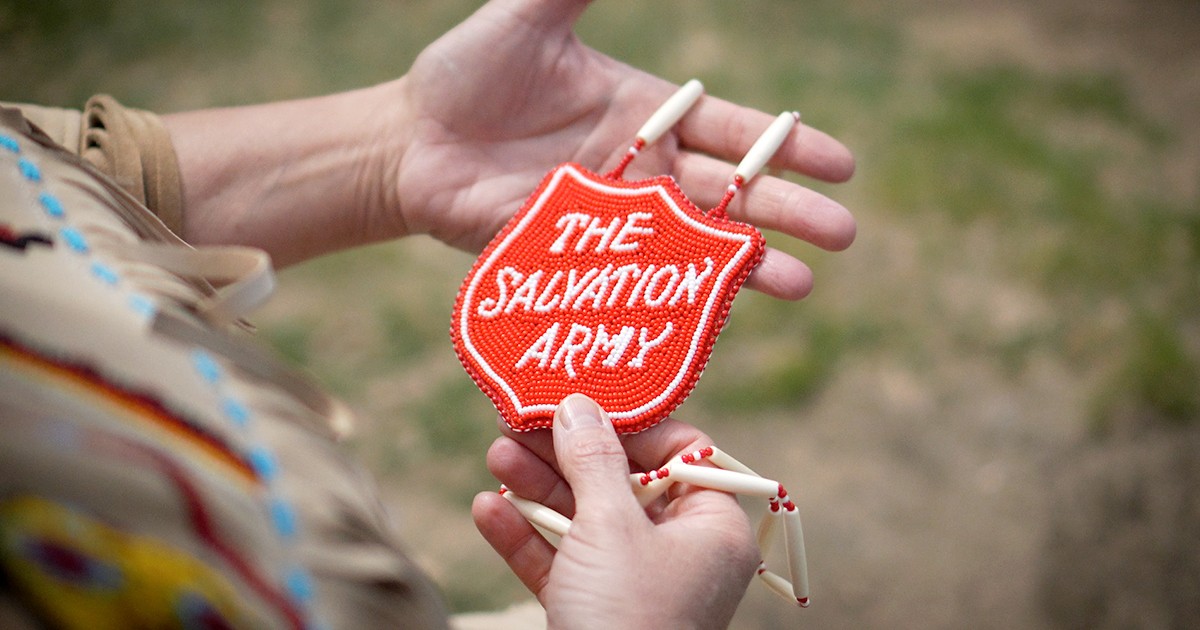



Comment
On Tuesday, August 28, 2018, Aimee Patterson said:
Leave a Comment